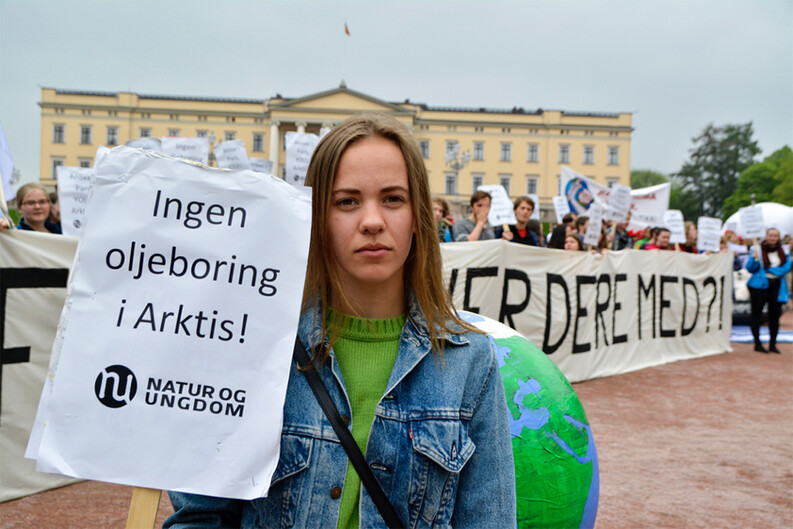Clinic Brief Urges Norwegian Court to Affirm Rights of Future Generations

A brief filed on October 31, 2017, in the Oslo District Court argued that new licenses for oil drilling in the Arctic issued by the government of Norway in June 2016 are inconsistent with the country’s obligations under international law. The Allard K. Lowenstein International Human Rights Clinic at Yale Law School authored the amicus brief, which explained how the new licenses conflict with Norway’s commitment to protect the rights of children and future generations.
The clinic submitted the brief in support of a suit filed in October 2016 by Greenpeace Nordic and Natur og Ungdom (Nature and Youth), Norway’s largest youth organization, against the Government of Norway. The suit asks the Court to rescind the licenses issued by Norway’s Ministry of Petroleum and Energy.
The licenses authorize thirteen oil companies, including U.S. corporations Chevron and ConocoPhillips and Norway’s Statoil, to explore and extract oil from the Barents Sea, a particularly vulnerable and fragile ecosystem in the Arctic.
The Greenpeace and Nature and Youth complaint in the case described how the Government of Norway failed to properly consider rights guaranteed in the Norwegian Constitution, Norway’s commitments under the Paris Agreement, and the licenses’ staggering environmental effects.
The Lowenstein Clinic’s brief explains that Norway’s obligations under international law require the licenses to be rescinded. By ratifying the Paris Agreement in 2016, Norway promised to reduce its emissions ambitiously to help limit the global surface temperature rise to 1.5 degrees Celsius above pre-industrial levels.
“As a party to various human rights treaties,” explained Peter Posada ’17, one of the student authors of the Lowenstein Clinic brief, “Norway committed to protecting the human rights to life, to the highest attainable standard of health, and to a healthy environment. By opening the Barents Sea to exploratory drilling and future oil extraction, Norway has foreclosed its ability to meet this promise—a promise it made to its people, its future generations, and the world.”
Students in the Lowenstein Clinic researched and drafted the brief under the supervision of James Silk ’89, the Binger Clinical Professor of Human Rights and Director of the Lowenstein Human Rights Clinic, and Alisha Bjerregaard ’08, Clinical Lecturer in Law and the Robert M. Cover–Allard K. Lowenstein Fellow in International Human Rights at Yale Law School.
“Global warming is a grave threat to human rights, particularly the rights of children, indigenous people, and other vulnerable groups,” said Silk, who is also a member of the group of legal experts who drafted the 2015 Oslo Principles on Global Climate Change Obligations. “The Lowenstein Clinic prepared this brief as part of its commitment to help minimize the human rights harms that climate change will cause.”
“We hope not only that the suit by Greenpeace Nordic and Nature and Youth will be a successful model for resisting climate change,” said Bjerregaard, “but also that the Oslo District Court and other domestic courts throughout the world will emphasize states’ human rights obligations to prevent further climate change.”
The Oslo District Court will hear the case over the course of two weeks, beginning on November 14.
The Lowenstein Human Rights Clinic at Yale Law School undertakes projects on behalf of human rights organizations and individual victims of human rights abuse. The Clinic provides students with practical experience that reflects the range of activities in which lawyers engage to promote respect for human rights, helps students build the knowledge and skills necessary to be effective human rights advocates, and contributes to efforts to protect human rights through assistance to appropriate organizations and individual clients.
For more information, please contact Charlotte Finegold at charlotte.finegold@yale.edu or at (203) 432-8368.


